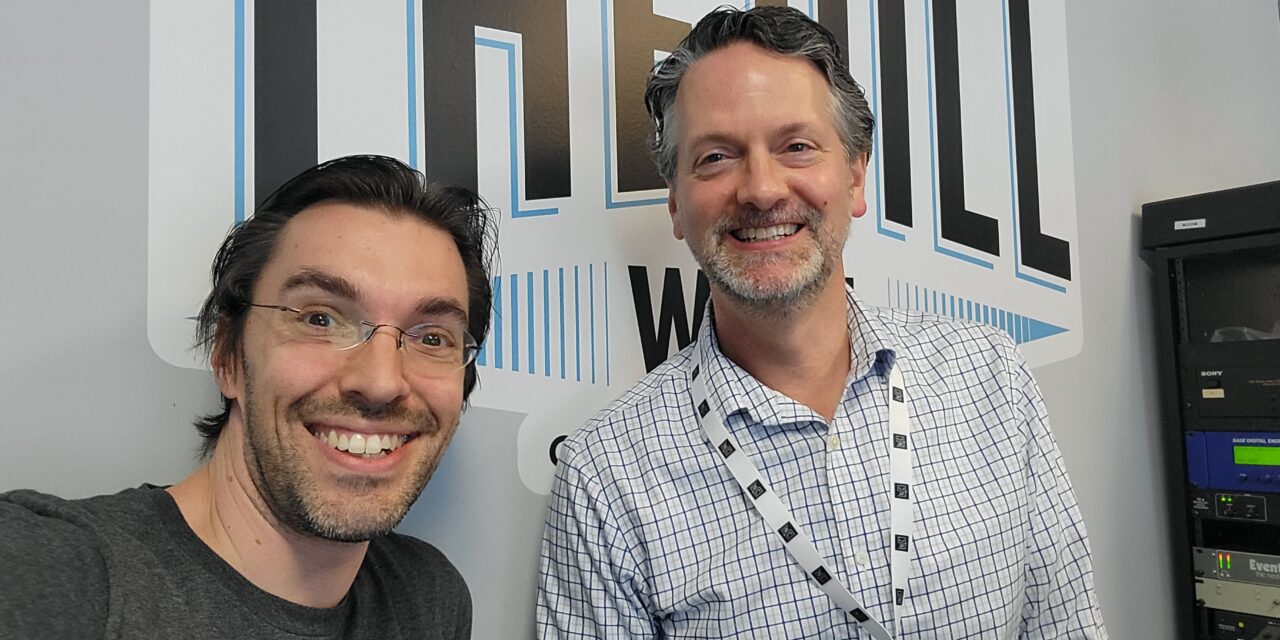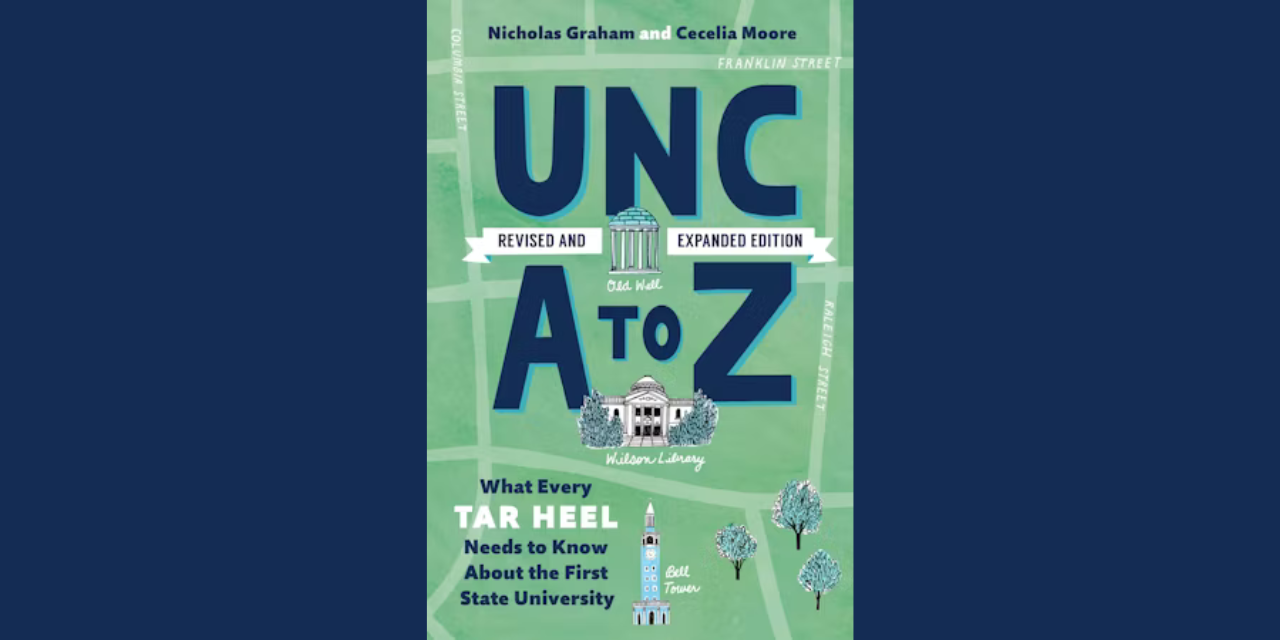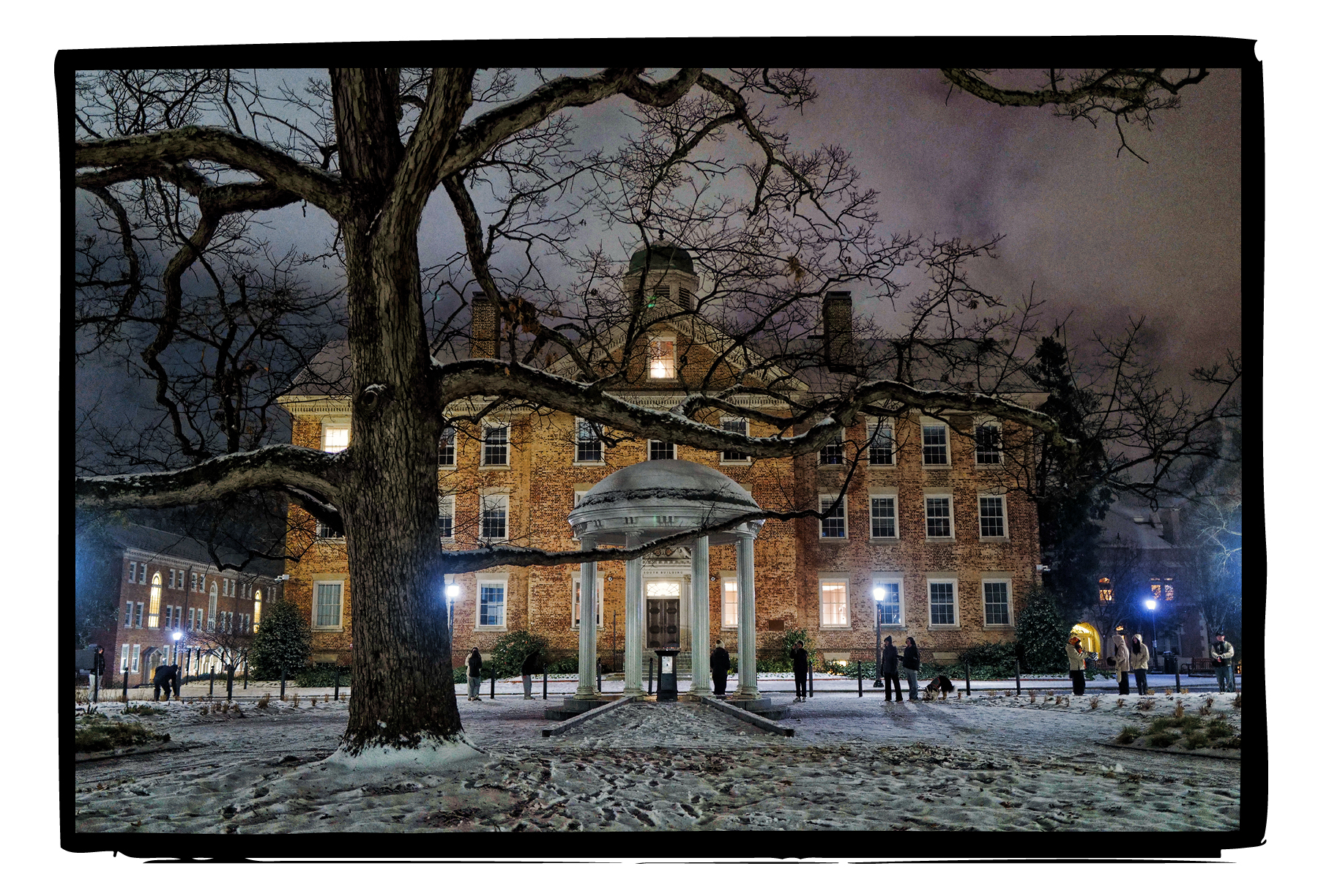This year, UNC Press is celebrating a milestone: the 100th anniversary of its founding back in 1922, as the first university press in the South and one of the first in the nation. This week, 97.9 The Hill’s Aaron Keck spoke with John Sherer, the Spangler Family Director of UNC Press, who’s led the organization for the last ten years.
This is a transcript of his discussion on the accomplishments of the press and more. Listen to the full interview here.
John Sherer: It’s a real accomplishment. It’s always been hard to run a university press, but I think in the early decades – you know, it was founded seven years before the Great Depression, world war. You’ve got all sorts of obstacles. Publishing has always been hard. So there’s a real sense of accomplishment and pride. The building once burnt to the ground in the late 1980s. And of course we’ve had a pandemic. So there’s been all sorts of challenges, but we’re emerging stronger than ever.
Aaron Keck: You have worked with university presses and you’ve worked with non-university presses, private companies. What’s the difference?
Sherer: It’s interesting. I worked at a commercial company called Basic Books for about 10 years in New York before. We do some commercial things at UNC, and it’s interesting because – we do the same things, right? We acquire books, we edit them, we make them, ship them, market them. But we’re doing a different kind of book at UNC Press. We’re trying to support a type of publication that the trade marketplace doesn’t support, a more scholarly publication. We don’t want to be overly concerned about the market value of it. We can’t ignore it, but we want to publish a type of book that the marketplace doesn’t support. So that drives different motivations for us.
Keck: How does that affect, or benefit, or change academic scholarship just in general?
Sherer: It’s super important. We sometimes say that humanities monographs – which is the prime form that we publish at UNC Press – those are kind of the laboratories of the humanities. So scholarship and humanities is advanced incrementally, through the work that is done through book publications.
Keck: And to what extent does that affect the university at large?
Sherer: It’s interesting. We actually don’t publish that many UNC faculty, but that’s deliberate. Think of us like you think about the Ackland Museum: the Ackland isn’t [just] a repository for student and faculty work, it’s a world class museum. Same thing with Carolina Performing Arts. They’re bringing in world class artists. So what we want to do is have a world class publisher on the UNC campus. We’re supporting the advancement of humanities by having this world class publishing presence there.
Keck: Every press has a focus, [a specific] kind of scholarship that they generally tend to publish. What’s UNC’s?
Sherer: We publish in about a dozen different areas. We only have 110 slots a year, so we can’t publish everything that we want to. Not surprisingly our primary focus is on the American South. We look at the South in lots of different ways, whether it’s history, or food, or folklore, or culture.
Keck: In those last hundred years, what are some of the highlights, books or authors that folks might know that came out of UNC?
Sherer: Well, you start at the top, in terms of sales, and our best-selling book is Mama Dip’s Kitchen. I don’t think there’s anybody in Chapel Hill who isn’t aware of Mama Dip’s Kitchen. What’s interesting about that publication is [that] it became a best seller because she got on QVC, which is not something we expected when we acquired the book. I wasn’t here when the book was acquired, but I think there were sort of modest expectations. And there was also the idea that it’s a soul food restaurant, and there were not a lot of cookbooks about soul food restaurants. I think there was a perception among commercial publishers, that soul food wasn’t really a genre that lent itself to cookbooks. And so one of the things the press was doing, and one of the things that we have done historically throughout our hundred years, is [making] sure we’re giving voice to people that commercial publishers don’t always represent well.
Keck: That was the same story with Julia Child, right? “Oh, French cooking. It’ll never work.”
Sherer: That’s right. Publishing is so funny. We want trends to drive everything, and then we also want everything to be completely unique. We can’t ever make up our mind.
Keck: What are you working on today?
Sherer: It’s funny, our timelines go pretty far out: next week, we’re going to launch our spring ‘23 books. But we’re also feverishly working on the books that we’re publishing this fall. We’ve got a couple great biographies: a biography of Shirley Chisholm, who was the first woman to run for president, [and] a biography of C. Vann Woodward, who was a major historian of the U.S. and the South. [We have] a big new history of the South, edited by UNC professor Fitz Brundage. [And] we’re always looking at our backlist books. We have 5,000 books in print, and we are always looking for something happening in the news cycle where there is something we can [promote.]
Keck: All the books that UNC Press has published over the years: do you have a favorite, or one that you’re proudest of?
Sherer: I’m not going to fall for that! <laugh> You know, different books have different moments in your life. Right now the book I’ve been talking about a lot is a book that we actually published, if you can believe this, in the 1940s. It was a book called Capitalism and Slavery, which is a very serious look at how the slave trade essentially financed the industrial revolution, which built our modern world. It was authored by Eric Williams, who was a person of color; he was actually the prime minister of Trinidad and Tobago. This was one of the first books by a POC economist, making this argument that essentially the slave trade funded the modern world.
Keck: UNC Press is celebrating its hundredth anniversary this year: are there celebration plans at all?
Sherer: We’ve been doing some things. We had a great event in March at the Chapel Hill Public Library. It was kind of [a] homecoming, a lot of former staff, authors, and some folks from the community. We’re thinking about trying to do something again over the fall, [though] COVID makes everything hard to plan.
It’s funny, because publishers don’t usually broadcast themselves. We’re supporting our authors. No one walks into a store and says “what’s new from Simon and Schuster?” So we normally are very comfortable in the background. But thanks to moments like this, we’re giving ourselves permission this year to talk a little bit about ourselves.
Keck: And then for folks who want more information on the press and the catalog, where can they go?
Sherer: Go to your local store. We’re lucky, a lot of North Carolina stores actually will have a section of UNC Press books. But if you are interested in local history and the history of the South, just go to those sections in the store. [And] UNCPress.org has all of our catalogs and a lot about our mission and some of our efforts. Most of the books that we publish, because they are so scholarly, are actually not in stores.
Keck: And anyone who wants to walk into a bookstore and say, “Hey, what’s going on from UNC Press?” – that would help you immensely, right?
Sherer: Absolutely, yeah. The stores want to carry our books, but they would carry them more if people bought them. Our books are peer reviewed. They are very well written and researched books. And we always guarantee that you will not regret spending whatever amount of money it is.
So when you go into a store, look at what’s on the spine. It matters what’s on the spine. If you haven’t heard of the [publishing] company, then maybe you need to think about it, because you can’t get that 20 hours of your life back. And that is one of the things we want to promise at UNC Press: you will be really glad that you spent those 20 hours with one of our books.
Chapelboro.com does not charge subscription fees, and you can directly support our efforts in local journalism here. Want more of what you see on Chapelboro? Let us bring free local news and community information to you by signing up for our biweekly newsletter.











